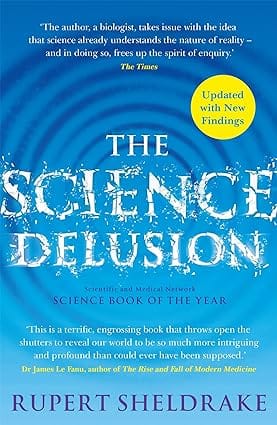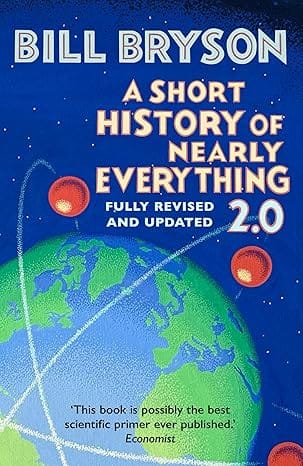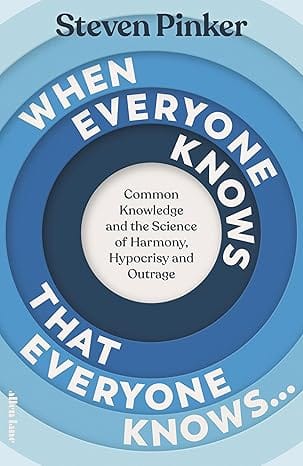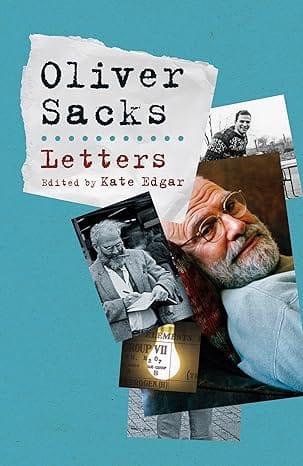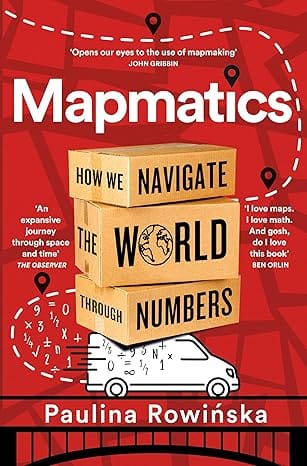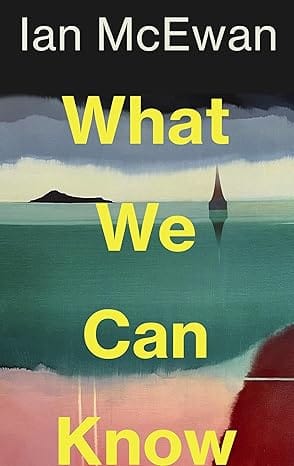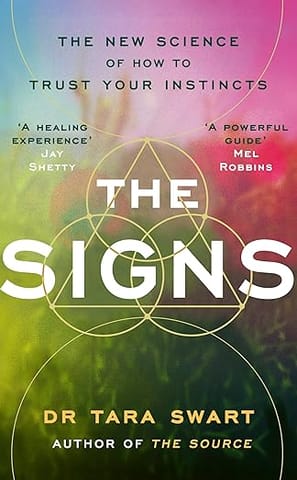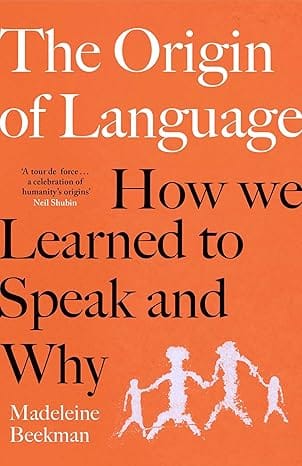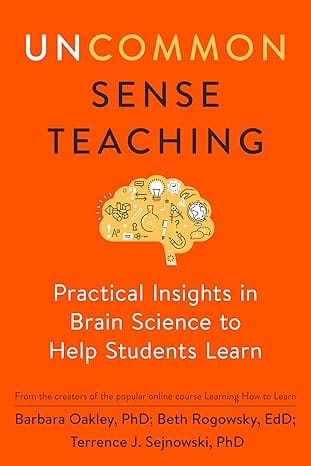WELCOME TO MIDLAND BOOK SHOP!
SHOP FOR
- Non-ficton
- Non-ficton
- Contemporary Fiction
- Contemporary Fiction
- Children
- Children
- Comics & Graphic Novels
- Comics & Graphic Novels
- Non-Fiction
- Non-Fiction
- Fiction
- Fiction
Shop No.20, Aurobindo Palace Market, Hauz Khas, Near Church +91 9818282497 | 011 26867121 110016 New Delhi IN
Midland The Book Shop ™
Shop No.20, Aurobindo Palace Market, Hauz Khas, Near Church +91 9818282497 | 011 26867121 New Delhi, IN
+919871604786 https://www.midlandbookshop.com/s/607fe93d7eafcac1f2c73ea4/677cda367903fd013d69b606/without-tag-line-480x480.png" [email protected]9781529393224 66420138a2168dec6f8efcde The Science Delusion https://www.midlandbookshop.com/s/607fe93d7eafcac1f2c73ea4/66420139a2168dec6f8efcf3/81sl-p9y4pl-_sy425_.jpg 9781529393224
Review
'Sheldrake powerfully reminds us that science must be pursued with an open mind.' - Robert Jackson, former UK Minister for Science
'This is a terrific, engrossing book that throws open the shutters to reveal our world to be so much more intriguing and profound than could ever have been supposed.' - Dr James Le Fanu, author of The Rise and Fall of Modern Medicine
'The author, a biologist, takes issue with the idea that science already understands the nature of reality - and in doing so, frees up the spirit of enquiry.' - The Times
'There is something rather odd about the current state of science. For Rupert Sheldrake, [it is] facing a 'credibility crunch' on many fronts. He presents this challenging argument by identifying 'ten core beliefs that most scientists take for granted.' He then interrogates each in turn by reformulating it, in the spirit of radical scepticism, as a question. This Socratic method of inquiry proves surprisingly illuminating. A serious mind-expanding book.' - James le Fanu, The Spectator
'Certainly we need to accept the limitations of much current dogma and keep our minds open as we reasonably can. Sheldrake may help us do so through this well-written, challenging and always interesting book.' - Crispin Tickell, Financial Times
'Rupert Sheldrake does science, humanity and the world at large a considerable favour.' - Colin Tudge, The Independent
Rupert Sheldrake shows very convincingly the way that time and again scientists refuse to look at anything outside a very limited set of possibilities. Sheldrake shows powerfully how some professional skeptics simply have no interest in looking into claims for anything outside of our current scientific understanding. A valuable and powerful message. - www.popularscience.co.uk
'Isn't it nice to have some mystery back? Isn't it nice to have doubts?' - Esquire
'We must somehow find different, more realistic ways of understanding human beings - and indeed other animals - as the active wholes that they are, rather than pretending to see them as meaningless consignments of chemicals. Rupert Sheldrake, who has long called for this development, spells out this need forcibly in his new book. He shows how materialism has gradually hardened into a kind of anti-Christian principle, claiming authority to dictate theories and to veto inquiries on topics that don't suit it, such as unorthodox medicine, let along religion. He shows just how unworkable the assumptions behind today's fashionable habits have become. The 'science delusion' of his title is the current popular confidence in certain fixed assumptions - the exaltation of today's science, not as the busy, constantly changing workshop that it actually is but as a final, infallible oracle preaching a crude kind of materialism... His insistence on the need to attend to possible wider ways of thinking is surely right.' - Mary Midgley, The Guardian
'This is a terrific, engrossing book that throws open the shutters to reveal our world to be so much more intriguing and profound than could ever have been supposed.' - Dr James Le Fanu, author of The Rise and Fall of Modern Medicine
'The author, a biologist, takes issue with the idea that science already understands the nature of reality - and in doing so, frees up the spirit of enquiry.' - The Times
'There is something rather odd about the current state of science. For Rupert Sheldrake, [it is] facing a 'credibility crunch' on many fronts. He presents this challenging argument by identifying 'ten core beliefs that most scientists take for granted.' He then interrogates each in turn by reformulating it, in the spirit of radical scepticism, as a question. This Socratic method of inquiry proves surprisingly illuminating. A serious mind-expanding book.' - James le Fanu, The Spectator
'Certainly we need to accept the limitations of much current dogma and keep our minds open as we reasonably can. Sheldrake may help us do so through this well-written, challenging and always interesting book.' - Crispin Tickell, Financial Times
'Rupert Sheldrake does science, humanity and the world at large a considerable favour.' - Colin Tudge, The Independent
Rupert Sheldrake shows very convincingly the way that time and again scientists refuse to look at anything outside a very limited set of possibilities. Sheldrake shows powerfully how some professional skeptics simply have no interest in looking into claims for anything outside of our current scientific understanding. A valuable and powerful message. - www.popularscience.co.uk
'Isn't it nice to have some mystery back? Isn't it nice to have doubts?' - Esquire
'We must somehow find different, more realistic ways of understanding human beings - and indeed other animals - as the active wholes that they are, rather than pretending to see them as meaningless consignments of chemicals. Rupert Sheldrake, who has long called for this development, spells out this need forcibly in his new book. He shows how materialism has gradually hardened into a kind of anti-Christian principle, claiming authority to dictate theories and to veto inquiries on topics that don't suit it, such as unorthodox medicine, let along religion. He shows just how unworkable the assumptions behind today's fashionable habits have become. The 'science delusion' of his title is the current popular confidence in certain fixed assumptions - the exaltation of today's science, not as the busy, constantly changing workshop that it actually is but as a final, infallible oracle preaching a crude kind of materialism... His insistence on the need to attend to possible wider ways of thinking is surely right.' - Mary Midgley, The Guardian
Book Description
The scientific counter argument to Richard Dawkin's The God Delusion
About the Author
Dr Rupert Sheldrake is a biologist and author of more than eighty technical papers and ten books, including A New Science of Life. He was a Fellow of Clare College, Cambridge, where he was Director of Studies in cell biology, and was also a Research Fellow of the Royal Society. From 2005-2010 he was the Director of the Perrott-Warrick Project for research on unexplained human abilities, funded from Trinity College, Cambridge. He is currently a Fellow of the Institute of Noetic Sciences in California, and a Visiting Professor at the Graduate Institute in Connecticut. He is married, has two sons and lives in London. Follow Rupert on Twitter @RupertSheldrake. His web site is www.sheldrake.org
out of stock INR 1299
1 1
Email ID already exists!
Your Current password is incorrect
Password Updated Successfully
Thanks for your Feedback
- Home
- Science Technology And Medicine
- The Science Delusion
The Science Delusion
ISBN: 9781529393224
₹1,299
SIZE GUIDE
Back In Stock Shortly - Fill The Book Request Form
Sold By: Hauz Khas - Aurobindo Market
Details
- ISBN: 9781529393224
- Author: Rupert Sheldrake
- Publisher: Coronet
- Pages: 448
- Format: Paperback
Book Description
Review
'Sheldrake powerfully reminds us that science must be pursued with an open mind.' - Robert Jackson, former UK Minister for Science
'This is a terrific, engrossing book that throws open the shutters to reveal our world to be so much more intriguing and profound than could ever have been supposed.' - Dr James Le Fanu, author of The Rise and Fall of Modern Medicine
'The author, a biologist, takes issue with the idea that science already understands the nature of reality - and in doing so, frees up the spirit of enquiry.' - The Times
'There is something rather odd about the current state of science. For Rupert Sheldrake, [it is] facing a 'credibility crunch' on many fronts. He presents this challenging argument by identifying 'ten core beliefs that most scientists take for granted.' He then interrogates each in turn by reformulating it, in the spirit of radical scepticism, as a question. This Socratic method of inquiry proves surprisingly illuminating. A serious mind-expanding book.' - James le Fanu, The Spectator
'Certainly we need to accept the limitations of much current dogma and keep our minds open as we reasonably can. Sheldrake may help us do so through this well-written, challenging and always interesting book.' - Crispin Tickell, Financial Times
'Rupert Sheldrake does science, humanity and the world at large a considerable favour.' - Colin Tudge, The Independent
Rupert Sheldrake shows very convincingly the way that time and again scientists refuse to look at anything outside a very limited set of possibilities. Sheldrake shows powerfully how some professional skeptics simply have no interest in looking into claims for anything outside of our current scientific understanding. A valuable and powerful message. - www.popularscience.co.uk
'Isn't it nice to have some mystery back? Isn't it nice to have doubts?' - Esquire
'We must somehow find different, more realistic ways of understanding human beings - and indeed other animals - as the active wholes that they are, rather than pretending to see them as meaningless consignments of chemicals. Rupert Sheldrake, who has long called for this development, spells out this need forcibly in his new book. He shows how materialism has gradually hardened into a kind of anti-Christian principle, claiming authority to dictate theories and to veto inquiries on topics that don't suit it, such as unorthodox medicine, let along religion. He shows just how unworkable the assumptions behind today's fashionable habits have become. The 'science delusion' of his title is the current popular confidence in certain fixed assumptions - the exaltation of today's science, not as the busy, constantly changing workshop that it actually is but as a final, infallible oracle preaching a crude kind of materialism... His insistence on the need to attend to possible wider ways of thinking is surely right.' - Mary Midgley, The Guardian
'This is a terrific, engrossing book that throws open the shutters to reveal our world to be so much more intriguing and profound than could ever have been supposed.' - Dr James Le Fanu, author of The Rise and Fall of Modern Medicine
'The author, a biologist, takes issue with the idea that science already understands the nature of reality - and in doing so, frees up the spirit of enquiry.' - The Times
'There is something rather odd about the current state of science. For Rupert Sheldrake, [it is] facing a 'credibility crunch' on many fronts. He presents this challenging argument by identifying 'ten core beliefs that most scientists take for granted.' He then interrogates each in turn by reformulating it, in the spirit of radical scepticism, as a question. This Socratic method of inquiry proves surprisingly illuminating. A serious mind-expanding book.' - James le Fanu, The Spectator
'Certainly we need to accept the limitations of much current dogma and keep our minds open as we reasonably can. Sheldrake may help us do so through this well-written, challenging and always interesting book.' - Crispin Tickell, Financial Times
'Rupert Sheldrake does science, humanity and the world at large a considerable favour.' - Colin Tudge, The Independent
Rupert Sheldrake shows very convincingly the way that time and again scientists refuse to look at anything outside a very limited set of possibilities. Sheldrake shows powerfully how some professional skeptics simply have no interest in looking into claims for anything outside of our current scientific understanding. A valuable and powerful message. - www.popularscience.co.uk
'Isn't it nice to have some mystery back? Isn't it nice to have doubts?' - Esquire
'We must somehow find different, more realistic ways of understanding human beings - and indeed other animals - as the active wholes that they are, rather than pretending to see them as meaningless consignments of chemicals. Rupert Sheldrake, who has long called for this development, spells out this need forcibly in his new book. He shows how materialism has gradually hardened into a kind of anti-Christian principle, claiming authority to dictate theories and to veto inquiries on topics that don't suit it, such as unorthodox medicine, let along religion. He shows just how unworkable the assumptions behind today's fashionable habits have become. The 'science delusion' of his title is the current popular confidence in certain fixed assumptions - the exaltation of today's science, not as the busy, constantly changing workshop that it actually is but as a final, infallible oracle preaching a crude kind of materialism... His insistence on the need to attend to possible wider ways of thinking is surely right.' - Mary Midgley, The Guardian
Book Description
The scientific counter argument to Richard Dawkin's The God Delusion
About the Author
Dr Rupert Sheldrake is a biologist and author of more than eighty technical papers and ten books, including A New Science of Life. He was a Fellow of Clare College, Cambridge, where he was Director of Studies in cell biology, and was also a Research Fellow of the Royal Society. From 2005-2010 he was the Director of the Perrott-Warrick Project for research on unexplained human abilities, funded from Trinity College, Cambridge. He is currently a Fellow of the Institute of Noetic Sciences in California, and a Visiting Professor at the Graduate Institute in Connecticut. He is married, has two sons and lives in London. Follow Rupert on Twitter @RupertSheldrake. His web site is www.sheldrake.org
User reviews
NEWSLETTER
Subscribe to get Email Updates!
Thanks for subscribing.
Your response has been recorded.

India's Iconic & Independent Book Store offering a vast selection of books across a variety of genres Since 1978.
"We Believe In The Power of Books" Our mission is to make books accessible to everyone, and to cultivate a culture of reading and learning. We strive to provide a wide range of books, from classic literature, sci-fi and fantasy, to graphic novels, biographies and self-help books, so that everyone can find something to read.
Whether you’re looking for your next great read, a gift for someone special, or just browsing, Midland is here to make your book-buying experience easy and enjoyable.
We are shipping pan India and across the world.
For Bulk Order / Corporate Gifting
 +91 9818282497 |
+91 9818282497 |  [email protected]
[email protected]
Click To Know More
INFORMATION
QUICK LINKS
ADDRESS
Midland Book Shop - Hauz Khas
Shop No.20, Aurobindo Palace Market, Near Church, New Delhi
Shop No.20, Aurobindo Palace Market, Near Church, New Delhi

